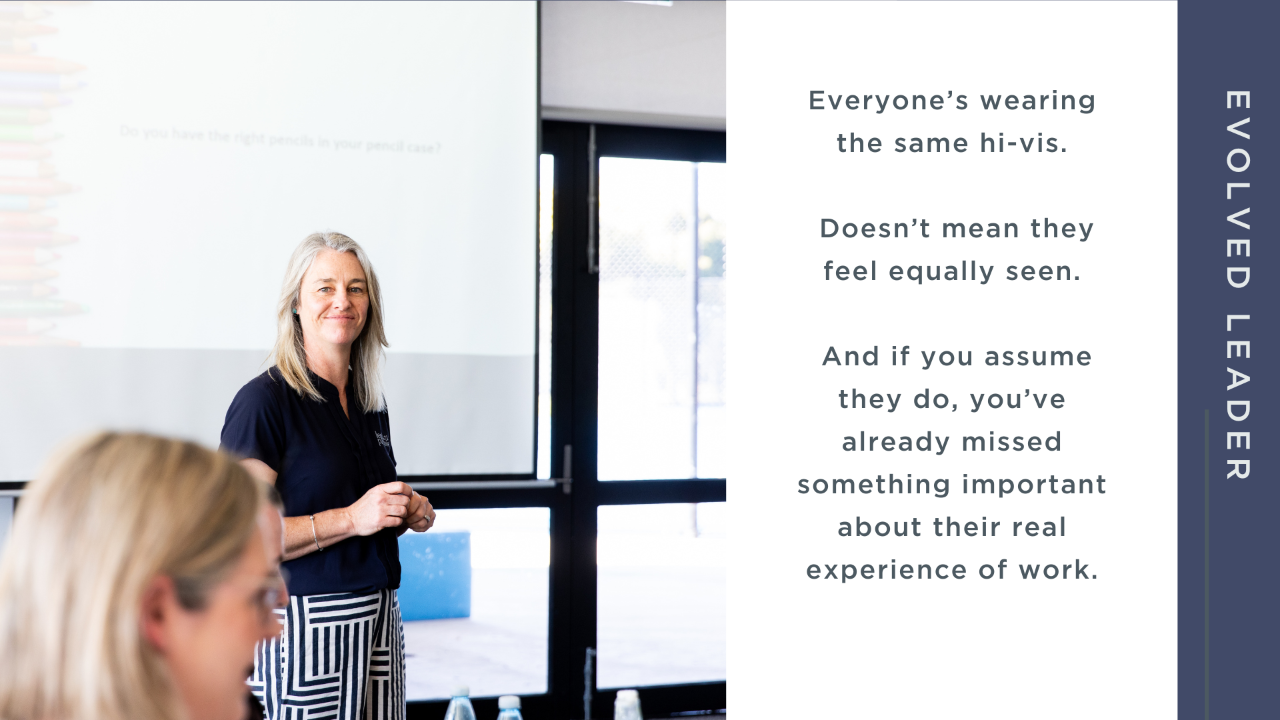Who Are You at Work? How Identity Shapes Experience (and Why Leaders Need to Pay Attention)
Aug 14, 2025
You don’t leave your identity at the door when you put on a uniform or swipe through the gate.
You bring your background, your beliefs, your experiences, and your invisible markers of identity that shape how you move through the world, and through your workplace.
And yet, in so many of our leadership conversations we think we are adapting to individuals, but for the person on the other side it can still feel we don’t get it.
Identity matters. It influences how we’re seen, how safe we feel to speak, how decisions land, and how we experience inclusion, or exclusion, at work.
If we want to lead more consciously, we have to start by understanding who’s really in the room.
What Is Intersectionality?
Intersectionality, a term coined by legal scholar Kimberlé Crenshaw, reminds us that our identities, gender, race, age, ability, sexuality, neurodiversity, socioeconomic background, don’t exist in isolation. They intersect to shape unique experiences of privilege and opportunity, or exclusion. It can work both ways.
In simpler terms: people don’t just experience the world through one lens.
A woman’s experience of work might differ from a man. But a woman of colour, a woman with a disability, or a trans woman might all experience it very differently.
Intersectionality helps us understand why a one-size-fits-all approach to leadership, inclusion, and culture doesn’t work. Because even when the role, the expectations and the conversations are the same, the weight of that role can feel very different depending on who’s carrying it.
Understanding Identity
One practical and powerful way to explore identity is through a tool called the Identity Wheel. It’s a simple, visual map where people reflect on key aspects of their identity, both visible (like gender, age, ethnicity) and invisible (like socio-economic background, neurodiversity, beliefs, religion or sexual orientation).
When we run this activity in leadership programs or team sessions, we see a visible shift in both understanding and being seen. It’s always a moment of insight. We realise: I’ve been assuming my experience is universal.
It’s not.
We ask:
- Which parts of your identity impact your experience at work the most?
- Which parts are most visible to others?
- Which parts feel like they don’t belong here?
Not everyone is walking into the same workplace, carrying the same load. Not even close.
What Leaders Start to See
When leaders and teams do this reflection together, a few things become clear:
- Some people are managing invisible pressures that others don’t notice,
- Certain aspects of identity carry more “weight” in different contexts, and that weight can shift depending on who’s in the room,
- The way we design roles, give feedback, or run meetings often assumes sameness, but people’s experiences are anything but.
This is intersectionality in action. It’s about understanding that identity is layered, shifting, and always influencing how people feel, engage, and contribute.
What Can We Do With That Insight?
Inclusive leadership isn’t about memorising every identity marker, it’s about getting curious.
It’s recognising that people experience work differently and creating space for those stories to be heard.
We have been taught to treat everyone equally, but in doing that we are actually creating an uneven playing field. What we need to do is treat everyone equitably.
So next time you’re tempted to treat everyone “equally,” pause.
Ask: Who might be having a very different experience of this team, this feedback, or this environment than I am?
And what would it take for this person to feel seen, heard, and supported?
And if you don’t know, start by asking.
That’s what inclusive leadership really looks like.
Get Evolved Leader delivered to your inbox every week to receive effective tools and practical ideas you can implement to develop your own leadership skills and style as well as those in your team.
We hate SPAM. We will never sell your information, for any reason.


